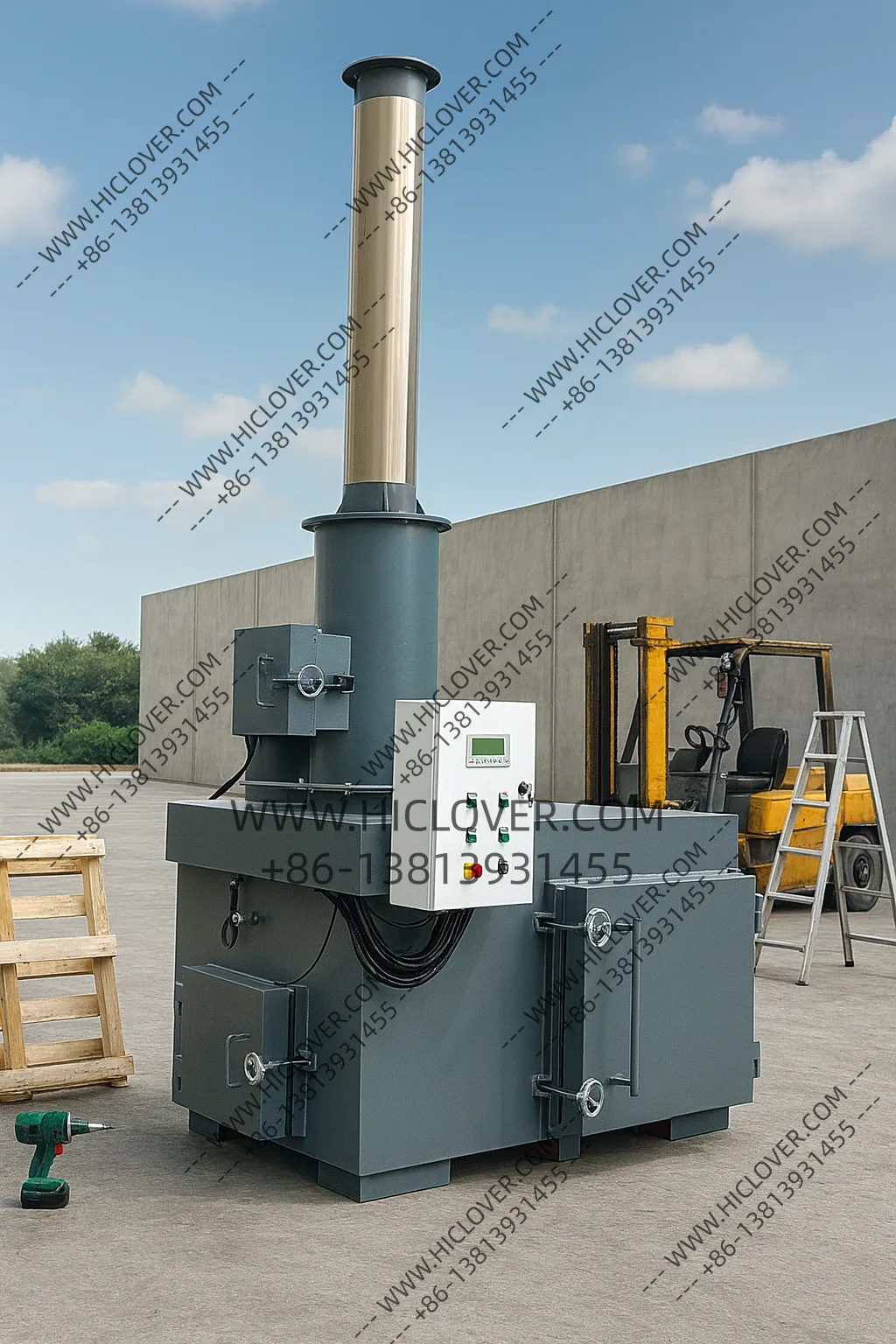High-Capacity Incinerators for Kenya Teaching Hospitals: HICLOVER TS200
Introduction: Modern Waste Management for Kenya’s Health Facilities
Kenya’s healthcare sector, particularly teaching hospitals and referral centers, faces mounting pressure to manage large volumes of biomedical waste in compliance with National Environment Management Authority (NEMA) regulations. With the growth of medical training institutions in Nairobi, Eldoret, and Kisumu, the demand for high capacity incinerators for Kenya teaching hospitals has never been higher. These facilities require robust systems capable of continuous operation and advanced emission controls.
Incinerators with Temperature Recording Systems
Accurate monitoring of combustion conditions is essential for safe disposal of syringes, infusion bags, and PVC-based plastics. HICLOVER provides incinerators with temperature recorders for Kenya health facilities, ensuring compliance with WHO and donor-funded project standards. Continuous recording not only validates performance but also provides documentation required for audits by international agencies. Equipped with corundum probe thermometers and PLC data logging, the TS200 model ensures stable high-temperature combustion cycles.
Dual Fuel Options: Diesel and Gas Operation
Fuel availability can be inconsistent across Kenya’s counties, especially in rural hospitals and remote teaching facilities. To address this, HICLOVER offers incinerators with dual fuel options – diesel and gas – for Kenya hospitals. The TS200 can operate with either diesel burners or switch to LPG/natural gas when pipelines or bulk storage facilities are available. This flexibility minimizes downtime and ensures cost-effective operation across varied healthcare environments.
HICLOVER TS200: Containerized Mobile Solution
The TS200 incinerator is specifically designed for medium-to-large healthcare centers and donor-funded projects in Kenya:
-
Capacity: 200 kg/hour burn rate
-
Primary Chamber: 2,000 liters with high-density refractory lining for long-term durability
-
Secondary Chamber: ≥1100°C, ≥2-second gas retention for dioxin and furan control
-
PLC Automation: Integrated control of ignition, air distribution, and temperature logging with built-in safety interlocks
-
Dual Fuel Burners: Diesel and gas compatibility for maximum flexibility
-
Containerized Mobile Design: Pre-installed in 20ft or 40ft ISO containers, deployable to rural teaching hospitals, urban health centers, or donor-supported facilities
-
Emission Control Options: Wet scrubber, quench tower, activated carbon dosing, and baghouse filtration available for strict donor compliance
Applications Across Kenya and East Africa
-
Teaching Hospitals in Nairobi and Eldoret: High-capacity systems support medical universities and large referral centers.
-
County Hospitals in Kisumu, Nakuru, and Mombasa: Containerized designs ensure quick installation and compliance with NEMA standards.
-
Donor-Funded Projects: Dual fuel and wet scrubber-equipped models meet requirements for UNDP, WHO, and World Bank-funded programs.
-
Mobile Deployment: Containerized TS220 units can also be transported to humanitarian operations or temporary health facilities.
Conclusion
The adoption of high capacity incinerators for Kenya teaching hospitals, combined with temperature recording systems and dual fuel flexibility, is transforming biomedical waste management in the country. With models such as the HICLOVER TS200, Kenya’s health sector gains reliable, containerized, and donor-compliant technology that ensures both environmental protection and operational efficiency.
For detailed specifications and procurement inquiries:
www.hiclover.com
[email protected]









